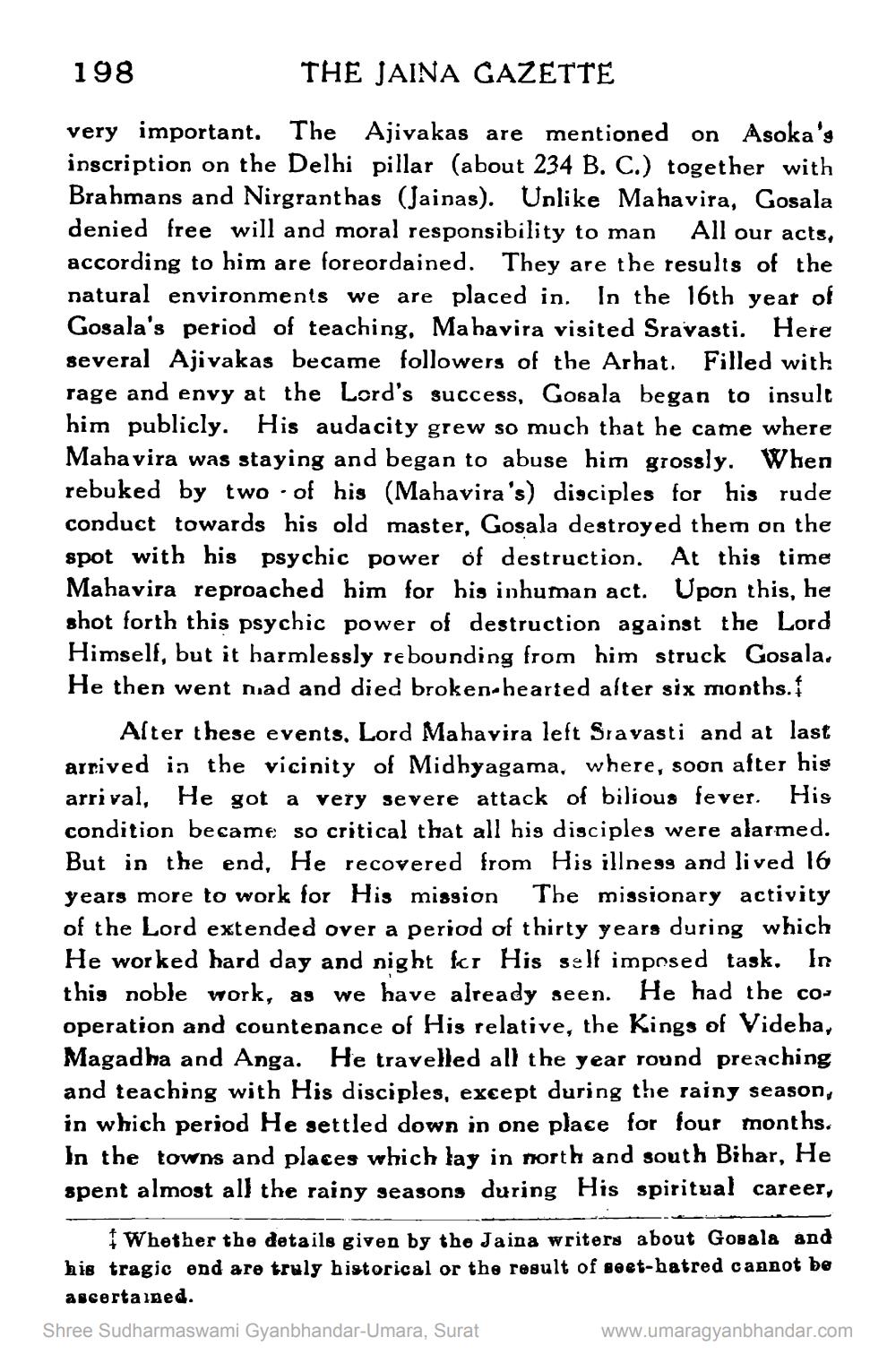________________
198
THE JAINA GAZETTE
very important. The Ajivakas are mentioned on Asoka's inscription on the Delhi pillar (about 234 B. C.) together with Brahmans and Nirgranthas (Jainas). Unlike Mahavira, Gosala denied free will and moral responsibility to man All our acts, according to him are foreordained. They are the results of the natural environments we are placed in. In the 16th year of Gosala's period of teaching. Mahavira visited Sravasti. Here several Ajivakas became followers of the Arhat. Filled with rage and envy at the Lord's success, Gosala began to insult him publicly. His audacity grew so much that he came where Maha vira was staying and began to abuse him grossly. When rebuked by two of his (Mahavira's) disciples for his rude conduct towards his old master, Gosala destroyed them on the spot with his psychic power of destruction. At this time Mahavira reproached him for his inhuman act. Upon this, he shot forth this psychic power of destruction against the Lord Himself, but it harmlessly rebounding from him struck Gosala. He then went niad and died broken-hearted alter six months. I
After these events, Lord Mahavira left Sravasti and at last arrived in the vicinity of Midhyagama, where, soon after his arrival. He got a very severe attack of bilious fever. His condition became so critical that all his disciples were alarmed. But in the end, He recovered from His illness and lived 16 years more to work for His mission The missionary activity of the Lord extended over a period of thirty years during which He worked hard day and night for His self imposed task. In this noble work, as we have already seen. He had the cooperation and countenance of His relative, the Kings of Videha, Magadha and Anga. He travelled all the year round preaching and teaching with His disciples, except during the rainy season, in which period He settled down in one place for four months. In the towns and places which lay in north and south Bihar, He spent almost all the rainy seasons during His spiritual career,
I Whether the details given by the Jaina writers about GoBala and his tragic end are truly historical or the result of seet-hatred cannot be
ascertained. Shree Sudharmaswami Gyanbhandar-Umara, Surat
www.umaragyanbhandar.com




